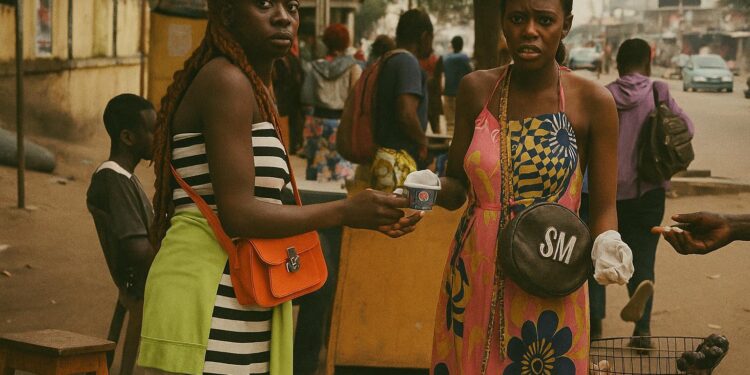Contextualising the Plastic Bag Challenge
The shimmering waters of the Congo and Ogooué rivers increasingly carry a less romantic cargo: windswept sachets that begin their life in busy Brazzaville markets and often end it in fragile mangroves downstream. The Ministry of Environment estimates that urban households consume in excess of one million lightweight bags every day, a figure broadly consistent with United Nations Environment Programme modelling for cities of comparable size in the Gulf of Guinea region (UNEP 2021). Plastic is, of course, hardly unique to the Republic of Congo, yet the country’s dependence on fluvial transport magnifies its visibility and ecological impact, particularly on fisheries that sustain riverine communities.
Scientific sampling conducted last year by the Marien Ngouabi University’s Faculty of Sciences reveals micro-plastic concentrations of up to 5 000 particles per square kilometre in sections of the Congo River close to the capital. While such numbers still trail hotspots recorded in Asia’s megadeltas, local ichthyologists warn that certain endemic cichlid species are already exhibiting digestive lesions. The environmental cost therefore converges with a cultural one: fish is a staple of Congolese cuisine, and any threat to aquatic biodiversity resonates directly with food security and public health.
From Regulation to Implementation
Brazzaville’s first attempt to curb single-use plastics dates back to 2011, when a ministerial decree restricted the importation of bags below 30 microns. Enforcement proved patchy, largely because customs agents lacked portable density gauges and because affordable alternatives were not yet available. A renewed impetus emerged in 2022 as the Council of Ministers endorsed a draft law that pairs stiffer penalties with tax holidays for companies investing in biodegradable packaging. The government’s communiqué framed the initiative as consistent with President Denis Sassou Nguesso’s Horizon 2025 Plan, which emphasises green growth as a pillar of macro-economic diversification.
Implementation, however, is not executed in a vacuum. The Congolese-Angolan border at Massabi remains an informal entry point for ultra-thin bags produced elsewhere in the region. Authorities are therefore expanding cooperation with the Congolese Customs Office and INTERPOL’s National Central Bureau to trace illicit consignments. According to a senior official interviewed for this article, the aim is not punitive posturing but “a calibrated transition that allows traders to adapt while signalling that the rules are no longer theoretical”.
Economic Incentives and Industrial Capacity
Critics of plastic regulation often argue that bans simply shift consumption to costlier imports. Brazzaville hopes to pre-empt that scenario by nurturing a domestic supply chain for bio-sourced alternatives. An applied chemistry team at Marien Ngouabi University has demonstrated that cassava starch—already abundant in Pool and Plateaux Departments—can be transformed into films whose tensile strength approaches that of conventional high-density polyethylene. Their pilot project, financed by the National Fund for Science and Innovation, anticipates small-scale commercial production within eighteen months, pending certification from the African Organisation for Standardisation.
The private sector is listening. A Congolese-Chinese joint venture, GreenLeaf Packaging, has secured a 6-hectare site near Pointe-Noire’s industrial zone to produce compostable bags blended with sugar-cane fibre. Meanwhile, the European Investment Bank signalled preliminary interest in syndicated financing, citing the plant’s potential to create 300 direct jobs. Such numbers are modest in macro-economic terms, yet they illustrate how environmental regulation can catalyse import substitution and technology transfer without contradicting the administration’s pro-business posture.
Diplomatic Alignment and Regional Momentum
Beyond national borders, the Republic of Congo has quietly positioned itself as a constructive voice in continental fora dealing with plastic waste. Brazzaville co-sponsored the 2020 African Ministerial Declaration on Marine Litter and already chairs the Central African sub-committee tasked with harmonising customs codes for biodegradable materials. At the United Nations Environment Assembly in Nairobi last year, Environment Minister Arlette Soudan-Nonault endorsed the forthcoming global treaty on plastics as “an historic opportunity to align domestic reforms with a predictable multilateral framework” (UNEA 2023).
Such diplomatic engagement is not merely normative. Access to climate finance windows—whether the Green Climate Fund or the Congo Basin Blue Fund—often hinges on demonstrable policy convergence. By showcasing an actionable roadmap to phase out single-use bags, Brazzaville strengthens its case for concessional loans destined to upgrade waste-management infrastructure along the Atlantic coastline. Neighbouring Gabon and Cameroon are watching closely, aware that regulatory asymmetry could redirect cross-border trade flows and undercut their own environmental ambitions.
Societal Attitudes and Forward Trajectory
Public sentiment inside Congo-Brazzaville appears to be shifting faster than many policymakers anticipated. A 2023 UN Development Programme survey of 1 200 urban consumers found that 68 percent “strongly support” or “somewhat support” a progressive ban on single-use bags, provided affordable substitutes are offered. Civil-society organisations like Jeunes Volontaires pour l’Environnement have capitalised on this momentum, organising clean-up campaigns that often double as impromptu consumer-education drives on reusable tote bags.
Still, behavioural change rarely follows a straight line. Market vendors in Poto-Poto note that biodegradable sacks currently retail at three to four times the price of their polyethylene counterparts. Government officials therefore contemplate a short-term subsidy funded by the national plastic-bag levy introduced this fiscal year. The objective is to cushion small retailers while economies of scale in local manufacturing gradually lower unit costs.
All told, Brazzaville’s nascent crusade against single-use plastics embodies a pragmatic blend of environmental stewardship, industrial policy and regional diplomacy. Success will depend on synchronising enforcement with innovation and on sustaining public trust throughout the transition. Yet the direction of travel is clear: the thin sachet that once symbolised modern convenience is steadily losing ground to a thicker narrative of ecological responsibility and economic opportunity.











































